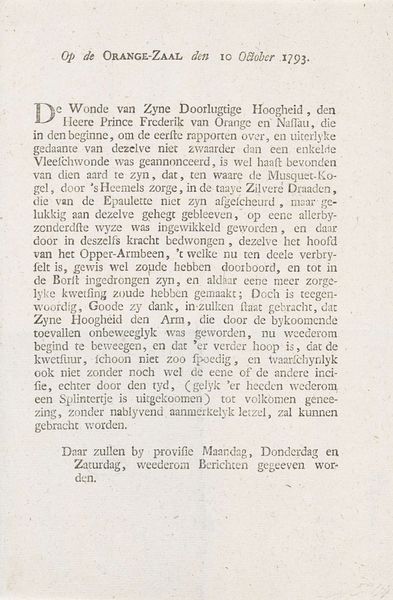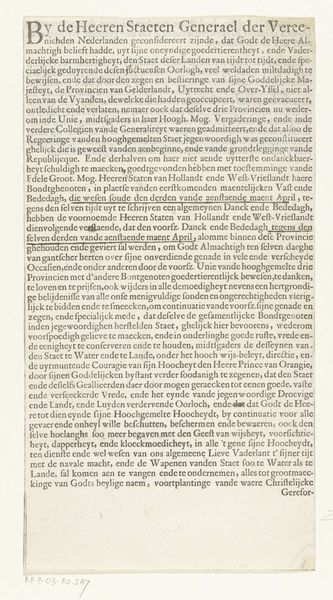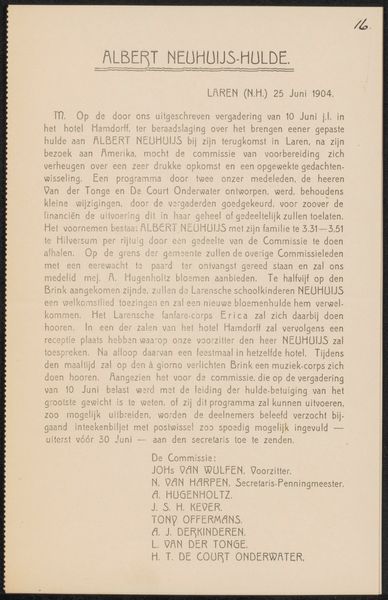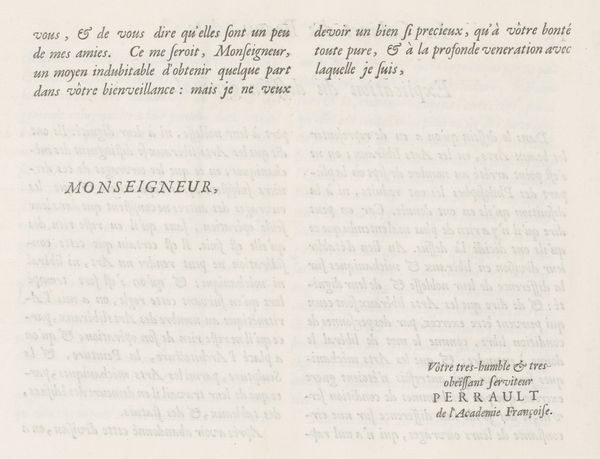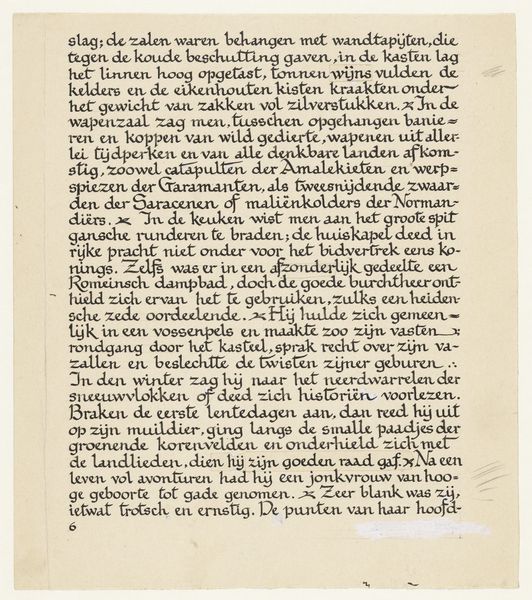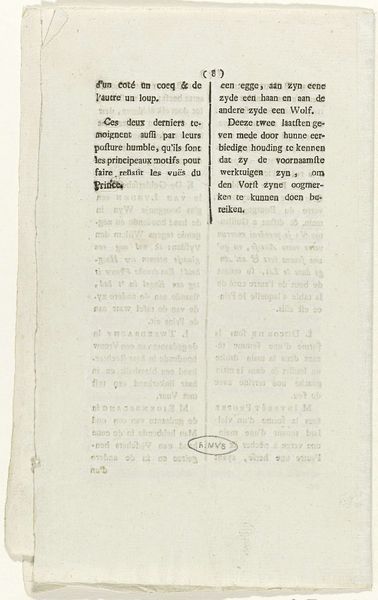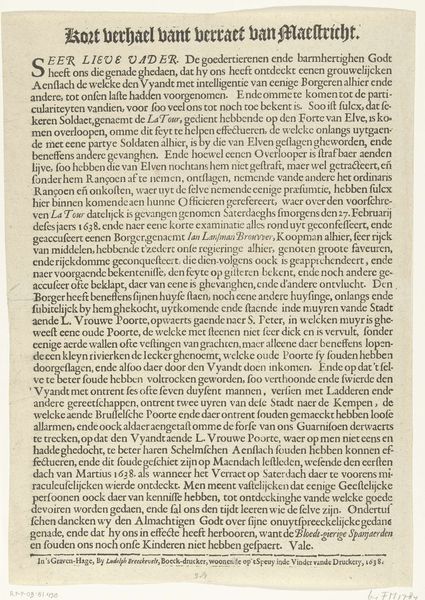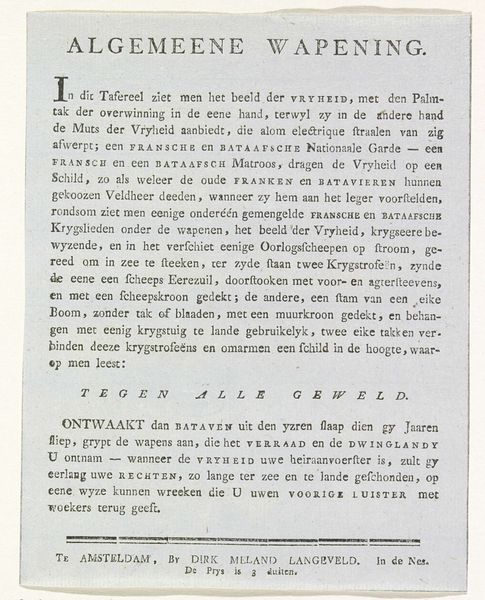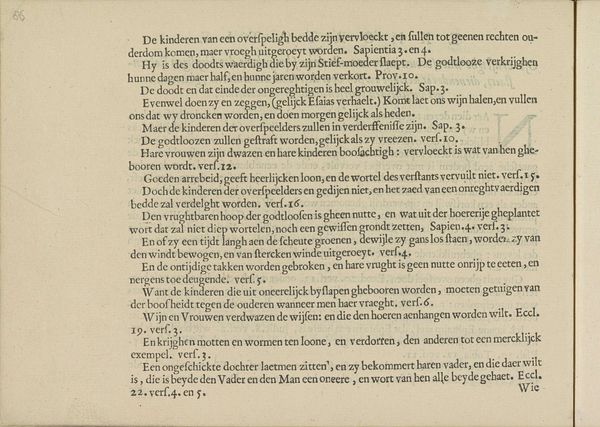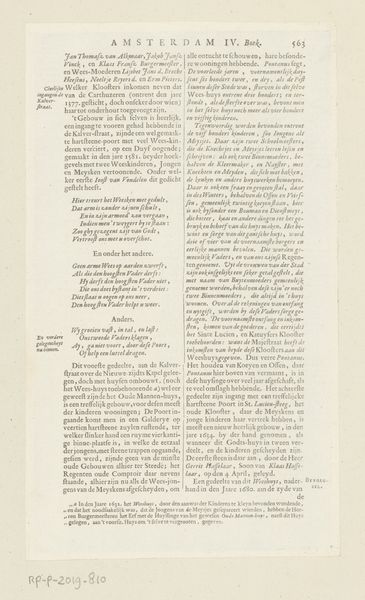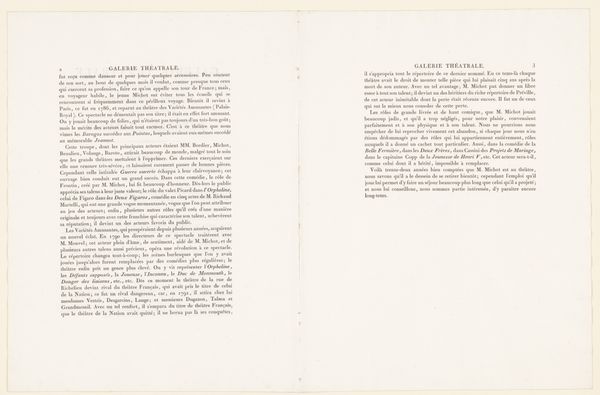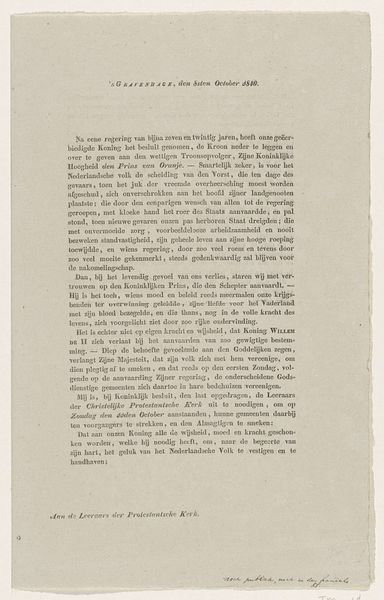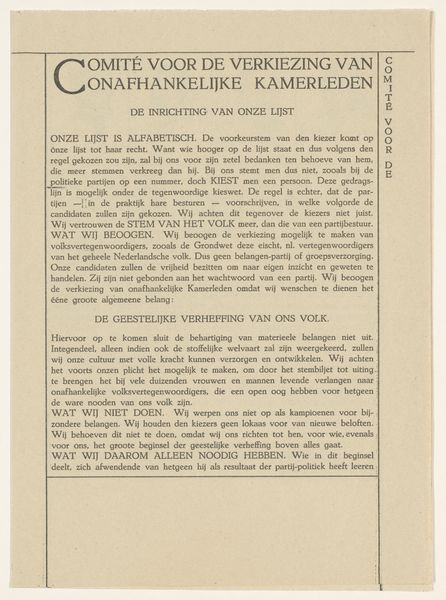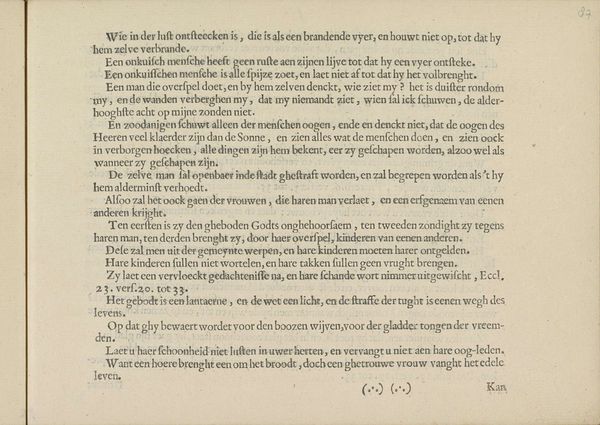
Request van de burger deputatie aan de vroedschap van Amsterdam, 1794 Possibly 1794
0:00
0:00
anonymous
Rijksmuseum
print, poster
# print
#
editorial typography
#
text
#
poster
Dimensions: height 264 mm, width 174 mm
Copyright: Rijks Museum: Open Domain
Curator: We are looking at “Request van de burger deputatie aan de vroedschap van Amsterdam, 1794,” which translates to "Request of the citizens' delegation to the Amsterdam city council, 1794." This print, whose author remains anonymous, is held at the Rijksmuseum. It is a poster with text, created during a tumultuous time in Dutch history. Editor: It strikes me as a very…serious poster. Visually stark and uncompromising. It looks like every single phrase, every word was hard-won. There's such an uncompromising density to it, doesn't let your eye rest for even a moment. You have to focus, I mean, really focus, and ask what is it that the author truly intends to tell you. Curator: Indeed. Contextually, this print appears in a period where the Patriot movement, seeking democratic reforms, clashed with the established order in the Dutch Republic. France occupied the Netherlands the year following the prints creation. Citizens' delegations like this one were a means of expressing popular will and pressuring city councils for change. Editor: So it's propaganda, in a sense, a very dignified, yet strident attempt to move people. Now, I think I see in this typography a visual embodiment of revolutionary ideals. Each letter seems bold, precise, each character, a miniature monument to the ideals that would motivate somebody to actually take time, sit down, and read the demands in full! The physical act of holding this poster then transforms into almost an act of political courage and devotion. Curator: The text reflects a moment of political tension. The citizens express respect for the Amsterdam council but voice concerns that the arrival of the Prince of Orange and the Duke of York might unduly influence their decisions towards resolutions harmful to the city and province. They also worry that the city might be subjected to a military siege due to deliberations concerning the French army. The document attempts to sway the local leaders as much as it informs the readers about civic matters and citizen empowerment. Editor: In its own quiet way this poster becomes like a… defiant battle cry, echoing the anxiety and aspirations of people on the cusp of dramatic change, almost like the printing press has given voice, permanently, to all these unsung champions. Curator: Considering its historical context, I see this as a prime example of the role art—even in the form of printed text—played in the political discourse of the time. It provides insights into the dynamics between citizens and authorities and sheds light on the fears and aspirations circulating in late 18th-century Amsterdam. Editor: Yes, I totally agree with you, but for me it evokes even a simpler idea of courage and resilience in uncertain times, a reminder that we can speak up for justice whenever something seems wrong!
Comments
No comments
Be the first to comment and join the conversation on the ultimate creative platform.
